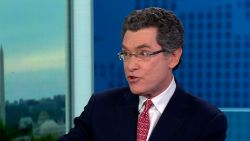White House press secretary Kayleigh McEnany told reporters Thursday that President Donald Trump will resume campaign rallies on Juneteenth, a holiday marking the emancipation of slaves, in Tulsa, Oklahoma, a city with a history of a racial massacre. She claimed Trump will “share some of the progress that has been made” for black Americans – but that explanation is being rejected by many African American leaders.
“The African American community is very near and dear to his heart. At these rallies he often shares the great work he has done for minority communities,” McEnany said, citing criminal justice reform and funding for historically black colleges and universities. “He’s working on rectifying injustices … So, it’s a meaningful day to him, and it’s a day where wants to share some of the progress that’s been made as we look forward and more that needs to be done.”
But given Trump’s history of racist statements, including the birther movement, many instead see a call out to rally white supremacists.
Sen. Kamala Harris, a California Democrat who is widely viewed as a top contender to be Joe Biden’s vice presidential pick, blasted Trump’s decision to hold the rally there on Juneteenth.
“This isn’t just a wink to white supremacists – he’s throwing them a welcome home party,” she tweeted Thursday.
Harris has been critical of Trump’s posture on race, frequently saying he’s unfit to be president because he doesn’t understand the racial turmoil engulfing the nation.
Other Democratic leaders chimed in to slam the President for holding the rally at the site that bore a horrific act of communal racial violence 99 years ago.
Texas congressman and Congressional Black Caucus member Al Green tweeted: “Trump rally with rebel flags (a symbol of slavery and racism) in Tulsa, OK (the place of #TulsaMassacre) on Juneteenth (a day of emancipation recognition) is more than a slap in the face to African Americans; it is overt racism from the highest office in the land. #RejectRacism.”
While the President has said he sympathizes with peaceful protesters marching after Floyd’s death, he has a history of stoking racial animus, including calling some protesters “thugs” and threatened to deploy the military to “dominate” looters.
He won’t apologize for taking out ads in the 1980s calling for the return of the death penalty aimed at five teenagers of color, wrongly accused of raping a jogger and pressured into giving false confessions, known as the Central Park Five. Last year, he implied in the series of racist tweets that four congresswomen of color weren’t American and sarcastically suggested “they go back and help fix the totally broken and crime infested places from which they came.” And he defended the protesters opposed to the removal of a Robert E. Lee statue in Charlottesville, Virginia, saying the group, which contained white nationalists, included some “fine people.”
The Tulsa rally, Trump’s first since March 2, comes amid a national reckoning on systemic racism in the wake of George Floyd’s killing at the hands of police officers, and a pandemic disproportionately impacting minority communities from both health and economic perspectives.
In 1921, Tulsa was the site of a massacre of hundreds of African Americans during racial unrest in the historic section of the city known as “Black Wall Street.”
Once considered one of the most affluent and flourishing African American community in the country, the district of Greenwood enjoyed more than 300 black-owned businesses, including luxury hotels, theaters, doctors and a pharmacist. Initial reports of the attack by a white mob, which looted and burned businesses to the ground, said it took the lives of 36 people. But historians now believe as many as 300 died, according to the Tulsa Historical Society and Museum.
Trump campaign manager Brad Parscale defended the Juneteenth rally date tweeting: “As the Party of Lincoln, Republicans are proud of what Juneteenth represents and the Emancipation Proclamation.”
But of course his celebration of emancipation comes as Trump vowed to keep Army bases named after Confederate commanders.
McEnany continued Thursday to make an illogical argument defending the President’s decision rejecting renaming 10 US military bases named after Confederate leaders, claiming Thursday that the bases are defined by people who serve there and not those they are named after.
“If you change the name, what you are saying to the men and women who left those forts, who died for this country in many cases, you are telling them that the institution they left was fundamentally and inherently racist because of the name that is on it. The President doesn’t stand for that proposition, he wants to respect our military,” she said.
Pressed by CNN’s Joe Johns on the fact that these bases are named for 10 individuals who betrayed their country, McEnany said: “Where the President stands is he believes these bases are most notably defined by the heroes within it, by the acts that they did in winning two world wars, defeating fascism across the globe. That’s what these bases stand for not the names on them. So, he doesn’t want to change the names, he’s vehemently opposed to that.”
CNN’s Ryan Nobles, Alicia Lee, Sara Sidner and Maegan Vazquez contributed to this report.



















